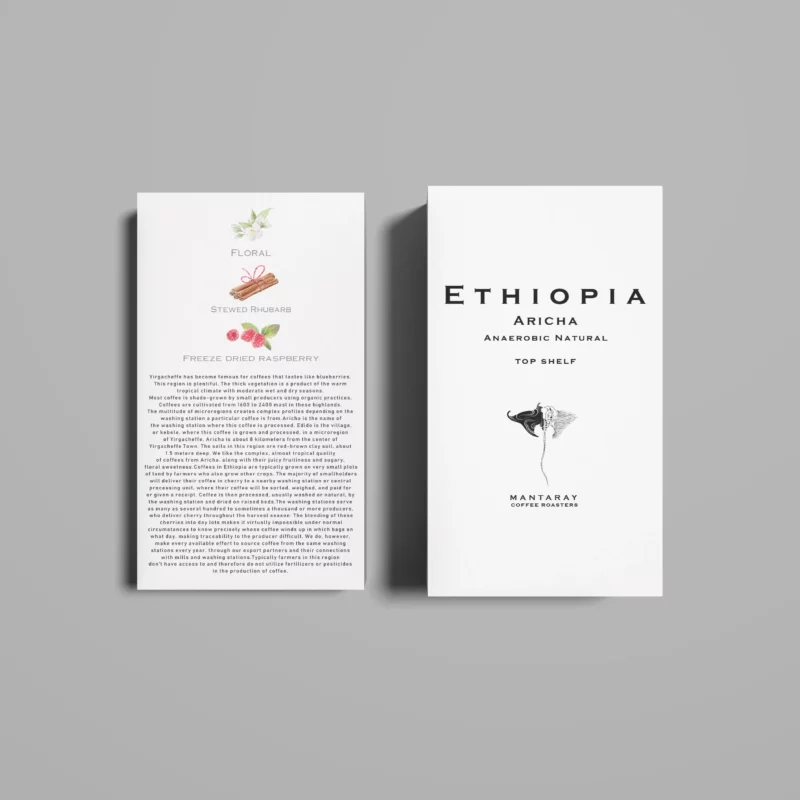
About this Coffee
ETHIOPIA ARICHA ANAEROBIC NATURAL
ROAST: Filter Roast Only
PROCESS: Anaerobic Natural
REGION: Yirgacheffee
ELEVATION: 1850-1880
VARIETAL: Mixed Heirloom
CUP: Floral, Freeze Dried Raspberry, Stewed Rhubarb
Yirgacheffe has become famous for coffees that tastes like blueberries. This region is plentiful. The thick vegetation is a product of the warm tropical climate with moderate wet and dry seasons. Most coffee is shade-grown by small producers using organic practices. Coffees are cultivated from 1600 to 2400 masl in these highlands. The multitude of microregions creates complex profiles depending on the washing station a particular coffee is from.
Aricha is the name of the washing station where this coffee is processed. Edido is the village, or kebele, where this coffee is grown and processed, in a microregion of Yirgacheffe. Aricha is about 8 kilometers from the center of Yirgacheffe Town. The soils in this region are red-brown clay soil, about 1.5 meters deep. We like the complex, almost tropical quality of coffees from Aricha, along with their juicy fruitiness and sugary, floral sweetness.
Coffees in Ethiopia are typically grown on very small plots of land by farmers who also grow other crops. The majority of smallholders will deliver their coffee in cherry to a nearby washing station or central processing unit, where their coffee will be sorted, weighed, and paid for or given a receipt. Coffee is then processed, usually washed or natural, by the washing station and dried on raised beds. The washing stations serve as many as several hundred to sometimes a thousand or more producers, who deliver cherry throughout the harvest season: The blending of these cherries into day lots makes it virtually impossible under normal circumstances to know precisely whose coffee winds up in which bags on what day, making traceability to the producer difficult.
We do, however, make every available effort to source coffee from the same washing stations every year, through our export partners and their connections with mills and washing stations. Typically farmers in this region don’t have access to and therefore do not utilize fertilizers or pesticides in the production of coffee.